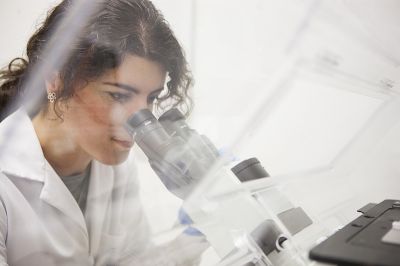
Researchers from the Harry Perkins Institute of Medical Research have developed a new method to tackle aggressive breast cancers, more effective than current treatments.
The research led by Perkins researcher Dr Anabel Sorolla involves the use of nanoparticles to deliver a series of anti-cancer agents directly to the tumour.
The study focused on triple negative breast cancer, an aggressive cancer with few treatment options that becomes highly resistant to chemotherapy and often relapses after remission.
The investigation found that chemotherapy resistance in this type of breast cancer is linked to a DNA-altering protein.
The protein is found in two places in the body, in the brain and in the breast. In the brain the protein works to protect neurons from damage, warding off brain cell death that could lead to Parkinson’s Disease.
In breast tissue, the protein triggers cancer cell growth, spread and chemotherapy resistance.
The new nanoparticles work by blocking the DNA-altering protein and delivering chemotherapy drugs directly to the tumour, while also making the cancer cells more susceptible to chemotherapy.
Dr Sorolla said her teams’ nanoparticles have been shown to be more effective than those currently used to treat patients.
“We have found that our nanoparticles only trigger cell death in this highly aggressive form of breast cancer, not in healthy cells,” Dr Sorolla said.
The team is currently testing a targeting molecule that functions like a GPS navigator and sends the nanoparticles straight to the tumour site.
“Our method works better than nanoparticles currently used in the clinic, partly because existing nanoparticles don’t have targeting molecules,” Dr Sorolla said.
“On the whole, when we combine existing anticancer drugs with our nanoparticles we can greatly reduce the dose of chemotherapy needed, with better results and less side effects.”
The study was published in the high impact, international journal Nanoscale.
Learn more about the Perkins Cancer Epigenetics Laboratory.
About Triple Negative Breast Cancer
Cancers that test negative for progesterone receptors, estrogen receptors and a protein called HER2 are known as triple negative.
Triple negative breast cancer does not respond to the most widely used breast cancer therapies.
Triple negative breast cancers have a higher rate of recurrence than other types of breast cancer.
